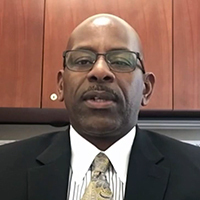
April is Military Saves Month. It’s a month dedicated to raising awareness about the unique financial challenges that military personnel and families face, encouraging them to save. Military Saves is also a nonprofit organization that provides support and resources to military personnel and their families.
“We help motivate the entire military community to build wealth and reduce debt through our research-backed program based on the principles of behavioral economics,” explains Lila Quintiliani, Senior Program Manager & AFC for Military Saves.
These issues are crucial, given the unique financial challenges that military Service Members and Veterans face:
- A 2018 Financial Literacy and Preparedness Report found:
- Over one-third of active-duty Service Members and Reservists had less than one month of emergency savings
- Only 36% of active-duty Service Members pay their credit card balances in full every month
- A 2017 Census study found:
- 56% of Veterans age 25-34 and 59% of Veterans age 35-44 had credit card debt
- Veteran households age 55-64 had a median net worth that was $72,000 lower than their civilian counterparts in the same age group
While findings like these raise some concerns, there were also many positives out of both studies. For example, the Financial Literacy and Preparedness Report found that 72% of active-duty Service Members and 67% of Reservists were comfortable with their financial situation. And while Veterans aged 55-64 had a lower median net worth, those aged 72 and up had a net worth that was $56,000 higher than their non-civilian counterparts.
As an organization dedicated to helping military Service Members and Veterans manage their money effectively and pay off debt, Consolidated Credit reached out to our partners and other military financial experts to get tips that can help Service Members, Veterans, and their families achieve and maintain financial stability.
Financial Tips for Service Members
Take advantage of all the free resources available

“Active-duty Service Members and their families can take advantage of the many free resources that are available to them,” Quintiliani says. “Every military installation has an accredited financial professional on hand to assist with things like creating a spending plan, understanding and improving credit scores, and developing a strategy to pay down debt.
“This financial readiness personnel can also help Service Members understand how to maximize their retirement savings, and how to make the most of the Thrift Savings Plan.”
She also encourages Service Members to look outside their installation.
“The Department of Defense-funded Military OneSource also has a team of financial counselors on hand who are available for confidential, virtual sessions.”
Actively engage in briefings and mandatory programs
All branches of the military have mandatory briefings and programs for their Service Members, from eight hours of financial literacy in basic training to a 4-hour module on personal financial preparedness during the 12-month transition assistance program.
However, the challenge with these briefings is that you get hit with a large volume of information all at once and it’s up to you to actively engage and understand it.
“It’s a little like drinking from a firehose,” Sybil Allison, the Director of Mission United of Broward County explains. “You have a bunch of briefings and a bunch of information and sometimes it’s too much information to possibly absorb.”
Barron Henry, a personal financial counselor and program manager for the United States Army Garrison in Miami, encourages Service Members to participate actively in the briefings.
“Some people do these briefings as a check-the-box,” he says, “they don’t really take good notes, they’re just sitting there because they’re required to. But then you have a financial hardship and you probably say, ‘Man, I should have really been paying attention.”
Aim for financial prevention instead of reaction

“One of the greatest challenges in literacy is to capture someone before an event happens,” Henry explains. “It’s about personal finance prevention and resiliency, rather than a reaction when you get into some financial challenge.”
Henry encourages Service Members and Reservists to take advantage of the financial counseling and checklists available at key life touchpoints, from separation to having their first child. These free resources are available to all Service Members and their families. However, it’s often up to an individual or someone in their household to reach out and take advantage.
Of course, that isn’t always easy given the workload that Service Members carry. Sybil Allison understands this personally from her 13 years in service.
“Service Members are working constantly, around the clock and at all kinds of odd hours. So, it can be hard to take that time out, but you have to do it.”
Take advantage of personal financial counseling
Henry encourages Service Members to get counseling as early as possible—as soon as they see they’ll be having one of these touchpoint events.
“Service Members need to plan early in scheduling a one-on-one appointment with a financial counselor,” he says. “These touchpoints are significant, life-changing events—whether it’s a PCS, a separation, or having a child. They need to stop by and see a financial counselor to get an update and literacy on that change of lifestyle.”
Start saving and investing early through your TSP

“The best and most important program is the Thrift Savings Plan,” says Dick Power, the CFP at the Foundation for Financial Planning. “This blended retirement system is a combination of a government pension and individual savings for retirement. The DoD will match 5% of a soldier’s salary in retirement savings. So, not saving the 5% is like refusing a pay raise. I recommend going to 10%. This gives a Service Member a great start on their future.”
Henry agrees and says that in some ways, it’s easier for a Service Member to commit to saving and investing earlier because of the pay structure that the military provides.
“An active-duty Service Member has more of an opportunity for forward-thinking,” he says. “You know exactly when you’re going to get paid compared to a civilian who could get released next month. You know you enlisted in 2021, you know you have until 2025, and you know that you have a systematic income, so you can start putting away money earlier to meet your objectives and goals.”
Make sure you have a robust emergency fund

Experts also agree that having an emergency savings fund that covers at least three months of expenses is essential. It can help you navigate touchpoints, particularly touchpoints like deployment and transitioning.
Salvador Guerrero, the assistant Vice President at the Randolph Brooks Federal Credit Union explains how they advise their members. “We recommend that they save three to six months of expenses in an emergency fund to help handle unforeseen situations. It also helps to set up AutoPay for bills, to ensure that these items get paid regardless of where the Service Member is located.”
Kate Horrell, a military financial coach agrees. “Make a financial plan for those challenges—surprise deployments, PCS moves, emergency travel if you live across the country from your family. Set up a savings plan for those expenses and contribute to it regularly. I recommend an automatic transfer to a bank account that’s slightly difficult to access.”
Get a support system in place when you’re deployed

One significant challenge that Service Members face is managing their finances during deployment. Tools like AutoPay can help with bills, but issues can arise while a Service Member is deployed.
“Having someone in your corner to help while you are deployed is a valuable asset,” says Joey Ruffalo, a finance coach and founder of J.R. Financial Coaching. “Providing accountability and regular check-ins to you and your spouse or significant other will leave you with the peace of mind to focus on your primary task at hand.”
Understand the SCRA and use it to avoid financial challenges
Another crucial tool for deployment is the Servicemembers Civil Relief Act (SCRA). It offers protection from financial challenges while you are deployed.

Roy Kaufmann the director of Servicemembers Civil Relief Act Centralized Verification Service explains, “The Servicemembers Civil Relief Act is a valuable tool for servicemembers to invoke when they find themselves as a defendant in a lawsuit, eviction or repossession action, or when there is a loan default.
“The Act is only applicable to obligations before the start of military service—the Military Lending Act applies to loans taken out while a person is on active duty,” Kaufman continues. “Protections under the SCRA include a cap on interest rates, prohibition on eviction or repossession without a court order, and possible delays in court actions. The Service Member should send a letter by certified mail to the lender, landlord, or other parties, clearly explaining when the active duty started. The Department of Justice has been vigilant about investigating and prosecuting violations of the SCRA.”
Still, as with other resources offered to Service Members, it’s important to be proactive to get SCRA protections in place before you deploy.
“You will need to reach out to your banking institution to alert them,” Joey Ruffalo advises. “Many have applications and documentation will need to be provided like proof of military service.”
Take advantage of pay raises and promotions to save more
During military service, promotions and pay raise offer a unique opportunity to save for the future.
“As Service Members are promoted or as they receive pay raises, they need to ensure those are raises are invested into their Thrift Savings Plan, bonds, stocks, mutual funds and other forms of investments,” Barron Henry explains. “When you get promoted or get a pay raise, increase your percentage in your TSP by one percent.”
The Key Role Military Spouses Can Play
For Service Members that are married, their spouse can take an active role in helping manage the family finances. What’s more, spouses and other family members can take advantage of the same counseling and resources available to the Service Member.
Take an active role in setting up personal financial counseling
“As an eligible participant—that means a spouse, if you have a dependent child, anyone that’s eligible by DoD ID Card can set up an appointment with a personal financial counselor,” Barron Henry explains, “As long as you’re eligible, you can set up an appointment and receive personal financial counseling They can attend on their own or invite their spouse, who may be reluctant.”
Attend all the briefings and programs with your spouse
While there is no requirement for spouses to attend mandatory briefings, Henry says it can be highly beneficial.
“Part of the work is coming to and attending the briefings and presentations,” he encourages, “so they can know what services and resources are available.
Transitioning Out of the Military in a Way that Fosters Financial Stability
Even for those who have been financially comfortable during their service, transitioning out of the military can be a serious challenge.
Consider how financial decisions while enlisted may impact your transition

“Start thinking about your transition at the beginning of your career and keep it in the back of your mind as you make financial decisions,” Kate Horrell advises. “How will a car payment impact your life if you’re getting out of the military before the car is paid off? Should you take advantage of Tuition Assistance to be better prepared for the civilian workforce?”
She encourages Service Members to right-size their financial strategy based on their time in service.
“In my perfect world, every new military member sets up a separate “transition fund” when they enter the military. Small contributions each month would add up, and grow as the service member’s financial responsibilities grow,” she says. “Maybe it only has $1000 after a four-year enlistment, which might be just right to get settled in an apartment and start going to college on the GI Bill. But it will continue to grow as the service member adds financial obligations like a family, debt, etc., to be larger by the time someone leaves the military decades later.
“I’ve never heard anyone say that they regret having saved too much money for their transition.”
Kate Horrell, Military Finance Coach
Start planning as soon as possible

“Start preparing your Road Map,” says Chase Peckham, Director of Community Outreach at the San Diego Financial Literacy Center. “Don’t wait until you’re right around the corner from separation before starting the military-to-civilian transition process. The ideal time to begin preparing for your transition is 12 months before you are available to begin employment in the civilian workforce, and now is the time to start saving.”
Take the time you need to focus on what happens after you transition
“Make sure all your affairs are in order before separating and prepare for the changes in civilian life,” Salvador Guerrero says. “Set aside money for an emergency fund to help with unexpected costs related to this transition. Pay down debts prior to help ease expenses during this time. Make a budget for the expected changes in income and expenses, such as housing and medical costs.”
Barron Henry encourages both Service Members and their spouses to think carefully about life after the transition as well. He recommends a few topics that the household should cover before separation.
- Understand how the transition will affect the household’s income
- If you own a home, think about whether you will need to refinance your mortgage based on your new income stream
- Identify what credit cards you need to pay down ahead of the transition
- Educate all family members and discuss the financial challenges that may take plan after leaving service so you can prevent financial stress
Research what programs and organizations are available where you reside
“Start researching and planning as early as you can with the Veterans’ programs that are available in the area where you will reside,” Guerrero continues. “Also, seek guidance from nonprofits in your area. RBFCU works with many groups who help to transition members of the military and Veterans.”
Carefully consider the costs of transitioning
“Recognize there is a cost to transition.”
Dick Power, CRP for the Foundation for Financial Planning
“You have to set up in a new place in a new apartment or home. You may have to buy furniture. You may have to buy new clothes to prepare for a new career. You will probably take a few months to find the right place and job. And you won’t have any income,” he continues. “So, set aside a sum of money to cover the situation. And don’t forget healthcare. While you get some transitional coverage, it is expensive and must be planned for.”
Expect cost of living increases
Chase Peckham points out that individuals and families need to plan for higher expenses once they transition out.
“Once you leave the military, it’s likely that your living expenses will increase because you won’t be receiving tax-free allowances, and costs for insurance, housing, groceries, and other day-to-day expenses could be higher,” he says. “Preparing a budget that reflects your new sources of income and expenses, and adjusting it when necessary, can help you stay on track as you adapt to your new financial circumstances.”
“Be willing to take a hard look at expenses and see if there is anything that can be reduced or cut, at least temporarily.”
Chase Peckham, Director of Community Outreach, San Diego Financial Literacy Center
“What are you going to need to make to keep at least the same quality of life you have currently?” Peckham continues, with a recommendation, “You can convert your government salary to what you will require in the private sector using this great calculator.”
Financial Tips for Veterans
Even with a 12-month transition program, checklists, and support from organizations both inside and outside the military, many Veterans face significant challenges in achieving financial stability in their civilian life. Our experts offered this advice:
Never underestimate the importance of a budget
“Figure out how much you can afford to spend and don’t spend any more than that. It really is that simple,” CFP® Dick Power recommends. “The challenge is that if you haven’t enough income to live the way you want to live you must either increase your income or cut your spending. There actually is no other choice.”
Military finance coach Kate Horrell agrees and recommends an ongoing focus on financial literacy, “Veterans will benefit from the same basic financial principles as everyone else: Spend less than you earn, take care of your most basic needs first, and never stop learning.”
Always consult the VA to check your benefits first

Sybil Allison of Mission United of Broward County explains that some Veterans may face financial challenges or go into debt because they don’t fully investigate and understand their VA benefits. After a life in the military where many things are done for Service Members, it can be a challenge to do it themselves as Veterans and set things up on their own.
“When they’re getting into college, it’s the same situation,” she says. “Once you’re transitioning out and want to go full-time into school, it’s very difficult to navigate all of that—the college system, the paperwork, and all of the resources that are available to them.”
“They may have been able to get some of those college classes paid for,” she continues, “or get some grants or tuition assistance or things like that. It’s just trying to navigate the system and all the different resources available to them.”
“A lot of time Veterans end up having student loan debt because they weren’t aware of the resources that are available to them.”
Sybil Allison – Director of Mission United of Broward County
Dick power agrees and encourages Veterans to connect as quickly as possible with their local VA branch, as well as other local Veterans’ organizations. “Go to the local VA and be sure you are “on their books.” You probably have healthcare benefits. You have education and home purchase benefits. There are business loans. Between the VA, the SBA, and state and local Veterans’ organizations (think American Legion, VFW, etc.) there is knowledge out there.
“Don’t think you have to go it alone,” he continues. “You aren’t asking for help. These folks are put in place to provide you with the support you earned for service to your country.”
Find outside organizations that can help you connect faster
Allison also encourages Veterans to look outside the VA at other organizations that can provide free support, such as Mission United.
“One of the key things that Mission United does is we partner with those organizations so that our case managers are able to connect that Veteran quickly because we have that connection already,” she explains. “It could be as easy as an information and referral session where a Veteran may just need one resource. We provide that information to them and do a warm handoff to the referral source and make sure they got connected to that organization.”
Rely on the free support that’s available
“You want to give yourself as many options as possible,” San Diego community outreach director Chase Peckham explains. “Take advantage of all the free services that are available—military job boards, military job fairs, TAP/ACAP—and don’t be afraid to network on your own to find a military connection through the VFW, former military you know, your local Chamber of Commerce and military associations such as, SDMFC (San Diego), Military Veterans Solutions, and Marine for Life.”
Kate Horrell also recommends finding military service organizations, “Join any military service organizations you may be eligible to join, such as the American Legion, TREA: The Enlisted Association, or Iraq and Afghanistan Veterans of America. Here’s a good list to start.”
Find a financial advisor that understands your situation
“It is important to find a trusted advisor or financial coach who first and foremost has your best interest at heart. This is referred to as a fiduciary standard,” explains Joey Ruffalo, founder of J.R. Financial Coaching. “They should also have the heart of a teacher. Instead of telling you what to do, they should be showing you the why, so you understand exactly what is going on as well.”
“It is important for those working with Veterans to understand that there might be underlying circumstances surrounding their life which must be taken into account when advising,” he continues. “For example, if you are working with a client who was injured or disabled as a result of service then there may be a greater need to explore long-term care options in the future that involve a greater nursing need,” he continues. “It is important for a Veteran to feel comfortable sharing details about their life and situation with their advisor so the best possible plan can be made.
Ruffalo encourages Veterans to make sure that any advisor that they work with is well-versed in the unique financial elements involving Veterans, including TSP plans and 401(k) rollovers, annuity options, survivors benefits plan (SBP), tax planning issues, and insurance.
